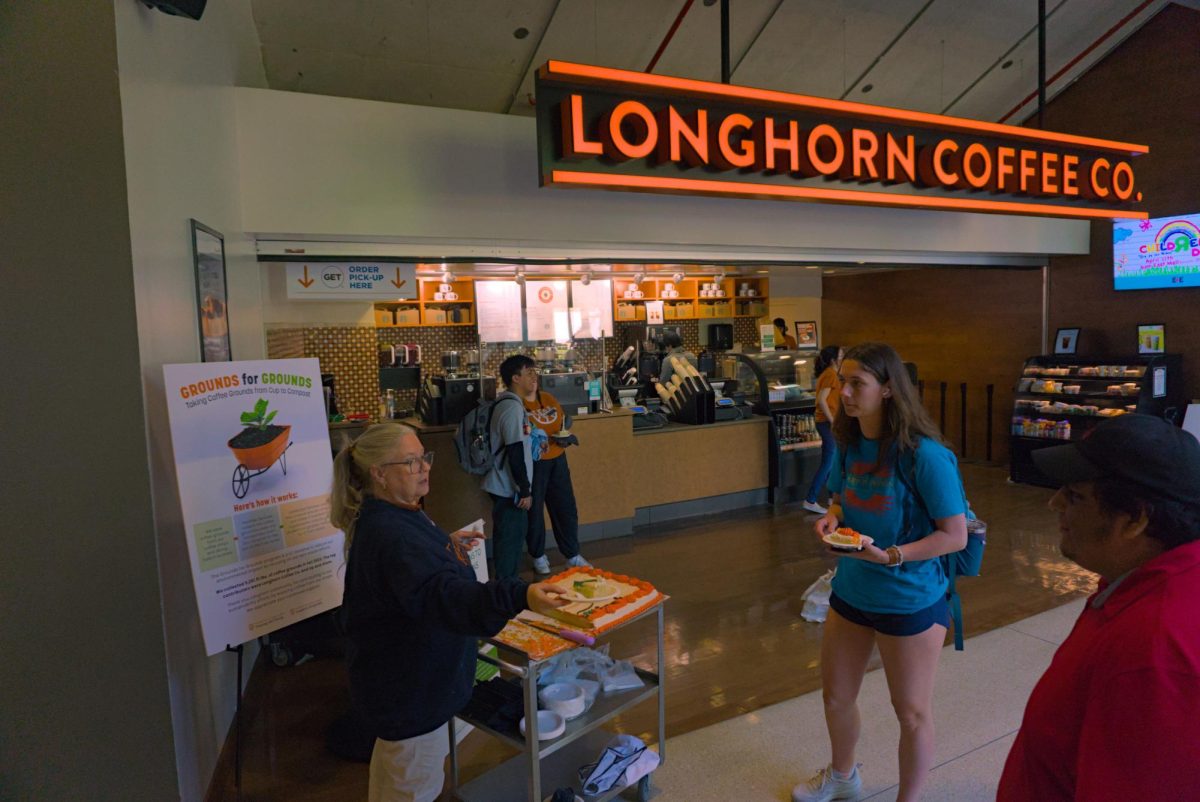Nine thousand two hundred lbs of coffee grounds returned to the earth as compost last semester thanks to a University initiative celebrated at Longhorn Coffee Co. on Tuesday.
Grounds for Grounds, a zero-waste initiative officially established in fall 2022, repurposes coffee grounds that would otherwise go to landfills. University Housing and Dining’s Tuesday celebration recognized Longhorn Coffee Co. for collecting the most coffee grounds — over 1,700 lbs — in the fall. All seven UHD coffee shops currently participate in the initiative.
“The Grounds for Grounds program is representative of cross-departmental collaboration aimed at sustainability awareness, reducing environmental impact and beautifying our campus,” a UHD spokesperson said.
Landscape supervisor Justin Hayes said the program mainly began because he needed a nitrogen source for his compost. He works in the Dell Medical District of campus, and to meet the district’s sustainability certification, the University had to make its own compost and use it throughout the site.
“If I’m going to be making it, I might as well be making it for the whole campus, not just for my site,” Hayes said.
For the initiative to financially make sense for the University Landscape Services has to make at least 100 yards each year, Hayes said. He said production exceeds that mark — the University makes between 500 to 600 yards per year.
Hayes said Landscape Services uses most of the compost around campus, but any UT-affiliated group can request compost. For example, student-run gardens managed by UT Farm Stand can use the compost, a UHD spokesperson said.
Hannah Zavala, a student manager at campus coffee shop Up and Atom, said the shop fills up around 1 1/2 to two gallon-sized buckets each week, and landscaping collects the buckets every couple of weeks.
Zavala, who’s been working at Up and Atom since September 2022, said the coffee shop implemented the program in spring 2023. Before joining the initiative, workers threw the grounds away.
“The machine is built so it’s very easy to take those grounds out,” Zavala said. “Once it’s full, we just take them out and put them in the bucket. (It was) a very simple transition.”
Hayes said more groups have joined the initiative over the years as sustainability has increased in popularity.
“In the beginning, it was just like we had a pile of leaves, (and we) were calling it composting,” Hayes said. “Progressively, as we started to make our own compost, refine the process, really get it down to more of an exact science, it seemed like more and more people started to get used to it and into it.”















